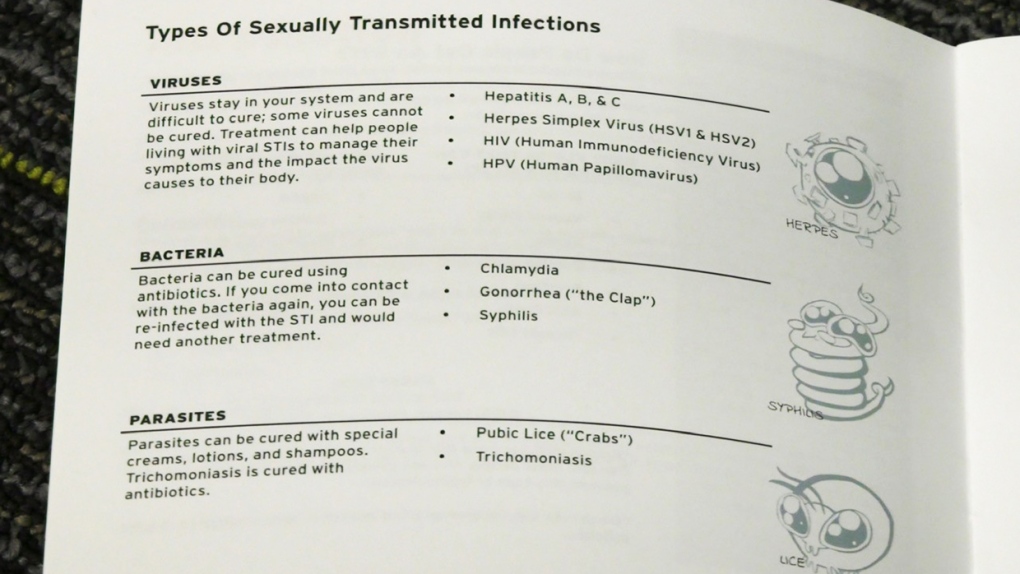Syphilis Resurgent in Canada
"Syphilis can affect any organ, not just the genitals, as is traditionally thought.""[When public health units pivoted to COVID] which was important, but there is an opportunity cost [programs offering access to STI testing, contact tracing and treatment slowed, or ground to a halt]."Dr.Zain Chagla, infectious diseases specialist, McMaster University"Every case of congenital syphilis reflects a failure of our health-care system to identify and treat a treatable condition."Dr.Carsten Kruger, infectious diseases fellow, Children's Hospital of Eastern Ontario"Our cases are the highest we've seen since the 1940's, so that's pretty shocking to see those types of numbers.""There's no question everywhere in the world right now social media apps are being used to arrange sexual contact and casual partnerships. In fact, about a third of our cases (in Alberta) report anonymous partners,""A disproportionate number of cases are among Indigenous persons and also persons who are affected by multiple social determinants of health -- so they're affected by homelessness, addictions, mental health issues as well as poverty."Dr. Ameeta Singh, infectious disease expert, University of Alberta
 |
| Syphilis is easily spread through sexual contact and can damage vital organs and lead to death if left untreated. (Getty Images) |
Rates of syphilis infection have increased within Canada, covering every age group. Females aged 15 to 39 have seen an especial rise in cases. A 740 percent increase in infectious syphilis was reported in Canada, infecting women from the years 2016 to 2020; the highest rates being seen among women of child-bearing age. That increase has resulted in a parallel rise in babies with syphilis.
Doctors in Montreal were alerted by public health bulletin in January to test all pregnant women in care for syphilis, reflecting a worrying rise in congenital syphilis. The bacterium, treponema pallidum causing infection, spreads from mother to fetus prior to birth. Left without treatment, syphilis in pregnancy can lead to miscarriage, stillbirth, or infant death following birth.
Born with syphilis, babies can end up with deformed bones, enlargsd liver and spleen, along with nerve and brain damage. Caught expeditiously treatment with penicillin can prevent transmission of syphilis from mother to baby. Commonly in the near past Canada would see no more than ten instances of congenital syphilis yearly. A national congenital syphilis surveillance study last summer asked pediatricians and other doctors treating children to produce monthly reports on confirmed or suspected case.
The official reported number to date came to 101 cases, considered an underestimate. The Prairie Provinces, Alberta, and Saskatchewan have presented as the geographic areas most likely to be reporting congenital syphilis. The rate of which had been ascending in Canada before the onset of the COVID pandemic. The swift focus and concentration on dealing with the SARS-CoV-2 virus took attention away from the rising number of syphilis cases.
Older people are also falling victim to syphilis. Some 9,382 cases were confirmed in 2020 in Canada, a substantial increase from 2011 when 1,749 cases were reported. Gay, bisexual and other men who engage in sex with men represent the highest case proportions, but syphilis is shifting toward heterosexual populations, especially targeting women. Every age group has seen a rate increase.
Symptoms include a sore that is often without pain, or an ulcer marking the point of contact. These can appear on the genitals, the mouth, at any time from three to 90 days following infection. Untreated, the infection advances to the secondary stage where fever develops, swollen lymph glands, a rash. Eyes and ears can become involved as well, causing partial or complete loss of vision, balance and problems with dizziness.
Should no treatment be forthcoming at the secondary stage, a latent stage can be entered where years, even decades forward, people can develop complications of the brain and nervous system "so problems with dementia, problems walking", explained Dr. Ameeta Singh, infectious diseases expert at University of Alberta. Timely penicillin treatment is like magic, she noted: "Often within a month, many abnormalities resolve".
 |
| "Our cases are the highest we've seen since the 1940's, so that's pretty shocking to see those types of numbers," said Dr. Ameeta Singh, and infectious disease expert at the University of Alberta |
Labels: Congenital Syphilis, Consequences, Penicillin Treatment, Sexually Transmitted Diseases, Syphilis Re-emerging

0 Comments:
Post a Comment
<< Home